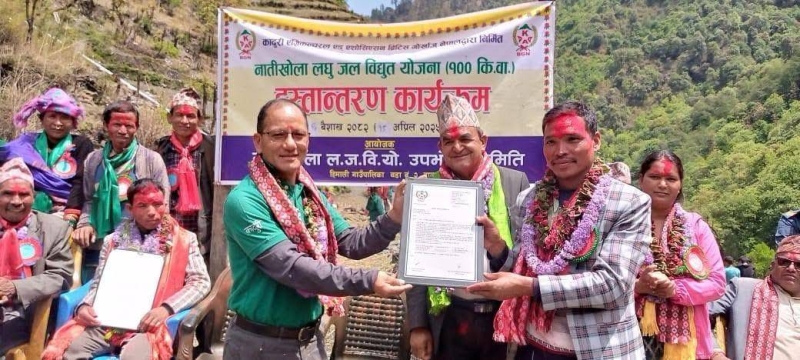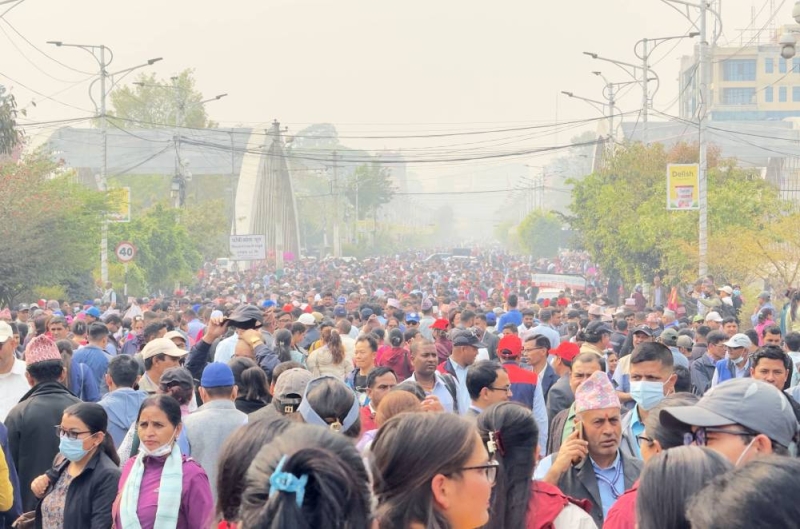EDITORIAL: Something for revival
EDITORIAL: Something for revival
Published: 09:17 am Dec 07, 2015
In order to encourage activity in the tourism sector as a whole, something more will be required than the suggestions for reviving the mountain and adventure tourism Nepal is a hub for adventure tourism in the world, where a number of majestic mountain peaks, including the highest mountain, Sagarmatha, hold out allure for those who want to take some risk and accomplish something in their life in climbing and mountain trekking. The country’s adventure tourism has experienced a sharp fall of late, and the government, in an attempt to revive it to a new level, has started taking measures towards that end. The Department of Tourism has submitted a proposal to the Ministry of Tourism, Culture and Civil Aviation recommending heavy cuts in rescue and health insurance costs. Till now, an expedition has to pay US$10,000 (roughly a million rupees) for rescue insurance before it is permitted to climb the country’s 188 peaks below 6,500 metres. These peaks are open for climbing. It has also proposed a 25 percent reduction in the cost of medical insurance for mountain guides and porters, after which the cost will come to US$3,000. For base camp workers of such peaks, the amount of US$2,000 has been recommended as the insurance amount after a reduction of US$1,000. These measures have been proposed after consultations with stakeholders and the proposal will have to be approved at ministerial level before it comes into force. A number of trekkers, climbers and their helpers had been killed in the recent past when snowstorms and avalanches struck, and to make matters worse, the major earthquake of April 25 dealt a big blow to mountain tourism. These phenomena had caused a number of expeditions to abandon their climbing bids. For those expeditions which were thus forced to abandon their attempts last spring, the department has sought at least a two-year extension of their climbing permits. More than 100 expeditions, including 42 who got permits to climb Mount Everest, had abandoned their attempts last spring. The proposal for free extension is quite justified in this case because it was not the fault of the expeditions but of occurrences beyond their control that led to the abandonment of the climbing bids. After the tragedies on the mountains in very recent years that had killed a number of adventure tourists and their helpers on the mountain trails, the attention of the public and the stakeholders had been drawn to the shortcomings of the mountaineering laws and regulations and administrative and communicative lapses, and calls had naturally increased for improving the situation in the future. As a result, a task force headed by the director general of the department is also working to identify the changes to the mountaineering laws and regulations necessary to avert the kind of tragedies that hit the mountains. In recent years, the country’s tourism sector has suffered much, particularly after the natural disasters and the Indian blockade, which is now down to a fraction of the tourism earnings that the sector brings in for the country in normal times. After all that has happened to ruin the country’s economy, including the tourism sector, a solid economic revival package will now be urgently called for. In order to encourage activity in the tourism sector as a whole, something more will be required than the suggestions for reviving mountain tourism. Law on acid attack On February 22, two high school girls, aged 15 and 16, were seriously injured when a boy acquainted with them threw acid at them at Basantapur. The perpetrators were booked for attempted murder as per the civil code as there was no law dealing with the acid attack that mostly disfigures the face, burns skins and, in serious cases, leads to permanent blindness if it comes into contact with the eyes. The acid attack prompted the civil rights activists, lawmakers and a large section of society to demand that the parliament enact a law dealing with acid attack. The parliament has enacted the law criminalizing acid attacks along with five to eight years of jail sentence depending upon severity of the offence and a fine of Rs. 100,000 to Rs. 300,000. The fine imposed on the offender will be provided to the victim. In case of murder of the victim the perpetrator shall face murder charge. The law will definitely play a role of a deterrent, but it is the society and law enforcement agencies that need to raise awareness about the prevention of violence against women.





